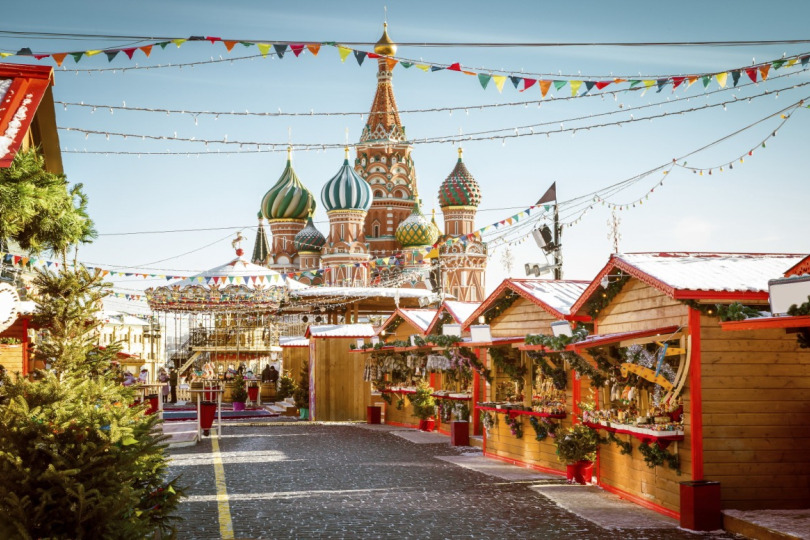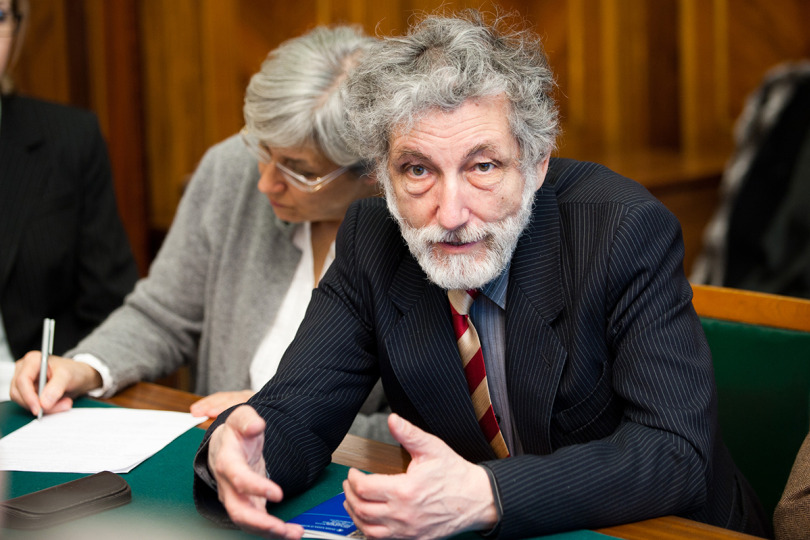
Pride for One's Country vs. Soviet Luxury: Top Papers of the April Conference
The April International Academic Conference on Economic and Social Development is Russia’s leading academic forum on social and economic sciences, and has won international acclaim. The XVII April Conference hosted by the HSE with support from the World Bank took place in Moscow on April 19-22, 2016. Selected by journalist Boris Grozovsky specially for IQ.hse.ru, below are some of the must-reads from the 900 papers presented at the HSE's XVII April Conference.
Rotterdam, Moscow, Venice. Graduate School of Urbanism at the World’s Largest Architecture Exhibitions
In April and May, the Graduate School of Urbanism (GSU) took part in three of the largest architecture biennales, held in Rotterdam, Moscow, and Venice. The exhibitions presented the results of independent research carried out by the School, student projects, and the results of an international student workshop organized by GSU.
'Normal Is Not Ridiculous': Most Interesting Reports Presented at the HSE's XVII April International Academic Conference
The April International Academic Conference on Economic and Social Development is Russia’s leading academic forum on social and economic sciences, and has won international acclaim. The XVII April Conference hosted by the HSE with support from the World Bank took place in Moscow on April 19-22, 2016. A total of 900 papers were presented at the HSE's April Conference. We consider the following selection to be must-reads.

More Effort Needed to Integrate Migrants
At a time when industrially developed countries are facing migration pressure, Russia needs to take a fresh look at immigration to assess its geopolitical benefits and prevent inherent social risks; a smart migrant integration policy can provide a solution.
Hobbies and Clubs Can Keep Youth Away from Alcohol
Youth in medium-sized and small towns who engage in after-school activities such as hobby clubs are less likely to drink alcohol. Generally, school-age youth in communities with higher educational levels, social and professional status are less vulnerable to alcohol abuse.

Small Towns Risk Losing Young People
Russian small towns risk being depleted of young people, as three-quarters of school leavers are planning to migrate to regional centres, Moscow or St. Petersburg in search of a better life, while just 4% are prepared to stay in their home communities.

Computers to Spot Pedophiles
Concept lattices can help spot pedophiles on the web. Researchers of the HSE's Department of Data Analysis and Artificial Intelligence have helped the Dutch police create a computer program that can detect internet pedophiles and even determine how dangerous they can be.
‘We’ll Develop Brands for Moscow Districts’
Undergraduate and master’s students of the HSE Faculty of Communications, Media and Design, together with the School of Sociology and School of Political Science are launching a research project on the need for design solutions in Moscow’s districts.
Mobility Opens up New Prospects for Employees
Labour mobility — a term used to describe the movement of workers within the labour market — can be further categorised as internal mobility, i.e. promotion or demotion within the same company, and external mobility, i.e. changing employers. Rostislav Kapeliushnikov presented the study's findings in the report 'The Pathways We Choose: Intra- and Interfirm Transitions' at a joint seminar of the HSE Centre for Labour Market Studies and the Laboratory for Labour Market Studies.
Russians Have Low Trust in Domestic Clothing Brands
Despite the recent arrival of new domesic brands in the clothing market, many Russians remain loyal to imports. However, using foreign-sounding brand names does not help Russian companies, according to Natalia Antonova, Associate Professor of the Department of Organizational Psychology and Head of the Psychology of Consumer Behavior Research and Study Group, and students of the HSE Department of Organizational Psychology Ajay Kumar, Maria Soloreva and Veronika Morozova, members of the Study Group.

